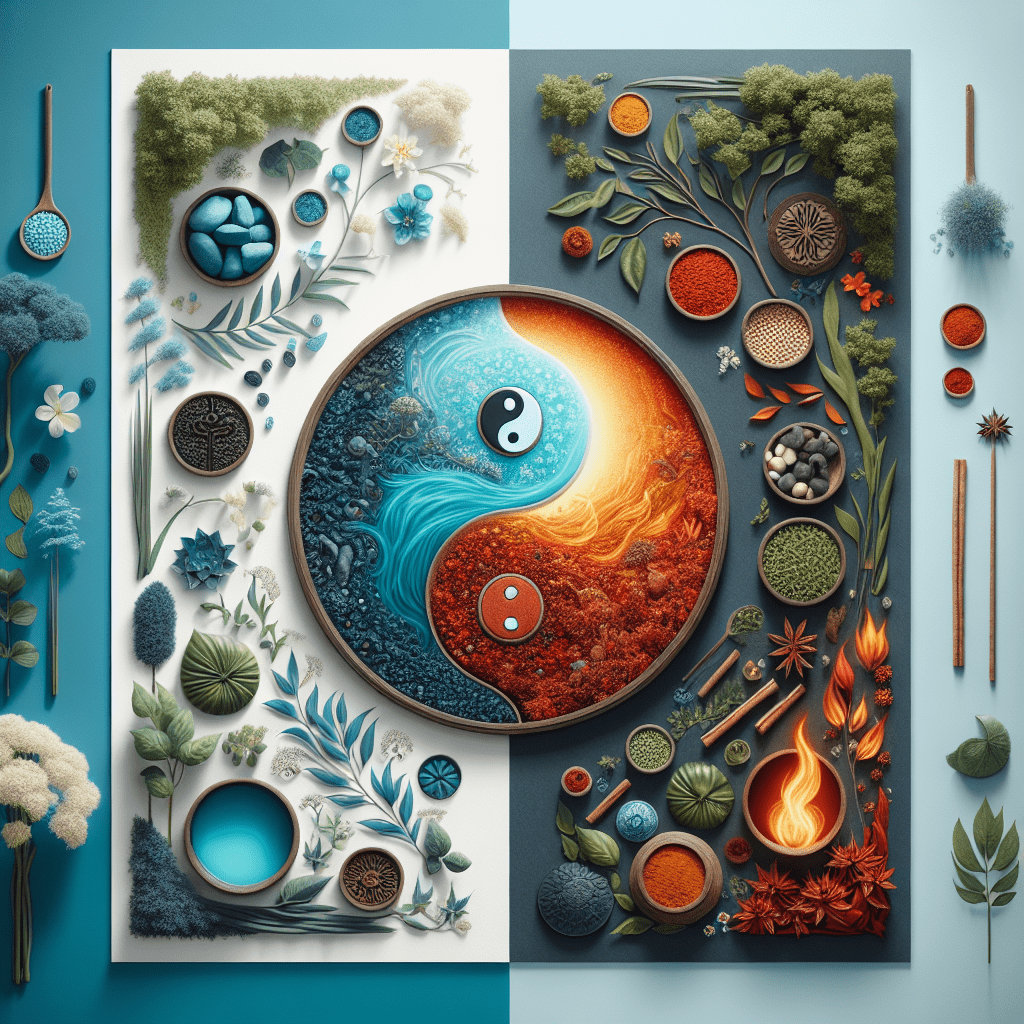In our fast-paced world where processed foods dominate and quick-fix diet trends come and go, there’s a quiet revolution happening. More people are turning to ancient wisdom for sustainable health solutions. Holistic nutrition—an approach that honors the whole person rather than just addressing symptoms—is experiencing a remarkable revival. At the heart of this movement are timeless Eastern wisdom books that offer profound insights for our modern health challenges.
These nutritional guides aren’t just books; they’re treasures that have weathered centuries of changing health fads while remaining remarkably relevant. Their enduring wisdom speaks to something our modern healthcare system often overlooks—the deep interconnection between what we eat, how we feel, and who we are.
At HerbalsZen, we deeply value this integration of ancient wisdom with modern innovation. Our EASTCHI AI technology bridges 2,000-year-old Eastern medical knowledge with cutting-edge artificial intelligence, creating personalized health journeys that honor traditional principles while embracing contemporary understanding. This blend of old and new represents what’s possible when we approach nutrition holistically, just as these remarkable textbooks have been teaching for generations.
Understanding Holistic Nutrition: More Than Just Food
Holistic nutrition textbooks teach us that true nourishment goes far beyond calories and macronutrients. In Eastern traditions, food is never just food—it’s medicine, energy, and information that communicates with our bodies on multiple levels.
The holistic approach recognizes that we don’t exist as isolated systems. Our digestion affects our mood, our stress levels impact our immunity, and our food choices influence not just our physical health but our mental and spiritual wellbeing too. This interconnectedness of body, mind, and spirit forms the cornerstone of Eastern nutritional philosophy.
What makes holistic nutrition textbooks particularly valuable is their emphasis on constitutional understanding. Unlike one-size-fits-all diet plans, Eastern wisdom recognizes that each person has a unique energetic makeup. Some run hot, others cold. Some need grounding, others lightening. Knowing your particular constitution—whether through Ayurvedic doshas, Chinese Five Element Theory, or other traditional frameworks—allows for truly personalized nutrition.
This personalization principle is precisely what HerbalsZen’s EASTCHI AI embodies. By analyzing individual constitutional types through Five Element Theory, our system creates dietary recommendations tailored to each person’s unique energetic profile, recognizing that what nourishes one person might imbalance another.
Nutritional Foundations: “Nutrition and Physical Degeneration” by Weston A. Price
Dr. Price’s landmark study of traditional diets
While not strictly an Eastern text, Dr. Weston A. Price’s groundbreaking work forms an essential bridge between traditional nutritional wisdom worldwide and modern understanding. In the 1930s, this dentist-turned-nutritional researcher traveled to isolated communities untouched by processed foods, documenting their remarkable health and the nutritional principles they lived by.
What makes this holistic nutrition textbook invaluable is its empirical evidence of traditional diets’ superiority. Price documented how indigenous populations consuming their ancestral diets displayed virtually none of the chronic diseases plaguing modernized societies. Their dental health, physical development, and resistance to disease were extraordinary—until Western processed foods arrived.
Price’s observations align beautifully with Eastern nutritional philosophy. He found that while traditional diets varied widely across cultures, they shared common principles: whole foods, seasonal eating, sacred food preparation methods, and nutrient-dense ingredients. These same principles echo throughout Eastern nutritional texts, validating their wisdom through observable outcomes across diverse populations.
This work stands as a powerful reminder that our ancestors—whether Eastern or Western—understood profound nutritional truths that modern science is only beginning to rediscover.
Eastern Wisdom Unveiled: “The Tao of Nutrition” by Maoshing Ni
For those seeking to understand Traditional Chinese Medicine’s approach to food, “The Tao of Nutrition” stands as an accessible yet comprehensive holistic nutrition textbook. Dr. Maoshing Ni, a 38th generation doctor of Traditional Chinese Medicine, presents the ancient Chinese understanding of food as medicine in practical, applicable terms.
This treasure unpacks the fundamental TCM nutritional concepts: the thermal nature of foods (cooling, warming, neutral), the five flavors (sweet, sour, bitter, pungent, salty) and their effects on specific organs, and how to use food strategically to correct imbalances in the body.
“The body’s internal environment reflects the external environment,” Dr. Ni explains, highlighting how seasonal eating creates harmony between our internal systems and the world around us. This concept of alignment with natural cycles forms a cornerstone of Chinese nutritional wisdom and is reflected in HerbalsZen’s seasonal dietary guidance.
What makes this book particularly valuable is its detailed food lists organized by therapeutic properties. Feeling inflamed? It offers cooling foods to restore balance. Digestion sluggish? Warming spices can kindle your digestive fire. This practical approach transforms meals into medicine, empowering readers to address imbalances before they become illness.
The book’s emphasis on preventative eating—using nutrition to maintain health rather than just treat disease—embodies the Eastern philosophy that “the superior doctor prevents sickness, while the inferior doctor treats actual illness.”
The East-West Bridge: “Healing with Whole Foods” by Paul Pitchford
Perhaps no holistic nutrition textbook has done more to translate Eastern nutritional wisdom for Western audiences than Paul Pitchford’s comprehensive “Healing with Whole Foods.” This extensive volume seamlessly integrates Traditional Chinese Medicine principles with contemporary nutritional science, creating a practical framework for modern holistic eating.
Pitchford’s genius lies in his ability to explain complex Eastern concepts—like the energetics of foods and Five Element Theory—while grounding them in scientific understanding of nutrients, phytochemicals, and biochemical processes. This integration makes the wisdom accessible without diluting its essence.
“Food is our most intimate relationship with nature,” Pitchford writes, highlighting how our dietary choices connect us to the larger ecosystem. This ecological awareness permeates the book, emphasizing sustainable choices that nourish both personal and planetary health—a principle increasingly validated by environmental research.
What truly sets this holistic nutrition textbook apart is its therapeutic applications. With detailed protocols for addressing specific health conditions—from digestive disorders to autoimmune conditions—it offers practical healing paths that combine Eastern wisdom with modern understanding. This bridge between traditions mirrors HerbalsZen’s approach of merging ancient knowledge with contemporary technology.
Ancient Wisdom in Modern Context: “Ayurvedic Cooking for Self-Healing” by Usha Lad and Vasant Lad
Ayurveda—India’s ancient system of medicine—offers a sophisticated understanding of how food affects our unique constitutions. “Ayurvedic Cooking for Self-Healing” translates this wisdom into practical kitchen knowledge, making it an essential holistic nutrition textbook for anyone interested in personalized eating.
The Lads explain Ayurveda’s constitutional types (doshas)—Vata, Pitta, and Kapha—and how each requires different dietary approaches for optimal health. This personalization stands in stark contrast to standardized diet plans, recognizing that “one person’s food is another’s poison” depending on their unique makeup.
“When diet is wrong, medicine is of no use. When diet is correct, medicine is of no need,” the book quotes, emphasizing nutrition’s foundational role in health. This preventative approach aligns perfectly with Eastern philosophical traditions that prioritize maintaining balance rather than treating imbalance.
Particularly valuable are the book’s insights into how cooking methods transform food energetics. Raw isn’t always best, contrary to some modern trends. Certain cooking methods can make foods more digestible and their nutrients more available—wisdom that predates modern nutritional science by thousands of years but is increasingly validated by research.
The Mindful Path: “The Yoga of Eating” by Charles Eisenstein
While many holistic nutrition textbooks focus on what to eat, Eisenstein’s profound work emphasizes how to eat. This unique treasure explores the consciousness we bring to our meals, arguing that our relationship with food may be as important as the food itself.
“The Yoga of Eating” challenges mechanistic approaches to nutrition that reduce food to fuel and nutrients. Instead, it invites readers into a more intuitive relationship with eating—one where mindfulness, gratitude, and pleasure are essential nutrients often missing from modern diets.
“When we eat with awareness, the body naturally gravitates toward what it needs,” Eisenstein suggests, proposing that much of our nutritional confusion stems from disconnection from our innate wisdom. This trust in the body’s intelligence echoes Eastern philosophical traditions that honor inner knowing alongside external guidance.
The book’s exploration of the spiritual dimensions of eating offers a powerful counterpoint to clinical approaches to nutrition. By reframing eating as a sacred act rather than merely a biological function, it restores depth to our relationship with food that many modern eaters have lost.
Core Concepts: Traditional Approaches Meet Modern Understanding
What unites these diverse holistic nutrition textbooks is their recognition of several fundamental principles that transcend cultural boundaries:
Food as medicine: All traditional systems view food as the first line of therapy, capable of preventing and treating illness when used wisely.
Constitutional personalization: Unlike standardized approaches, Eastern traditions recognize unique body types requiring different nutritional strategies—a principle that HerbalsZen’s EASTCHI AI embodies through its constitutional analysis.
Energetics beyond nutrition: Foods aren’t just packages of nutrients but contain energetic properties (heating/cooling, expanding/contracting) that affect our systems beyond their caloric or vitamin content.
Seasonal alignment: Eating in harmony with seasonal changes supports the body’s natural adaptations and creates resilience—a principle reflected in HerbalsZen’s seasonal dietary guidance.
Mind-body integration: Our thoughts while eating, our emotional state, and our environment all influence how we digest and assimilate nutrition.
Modern research increasingly validates these ancient insights. Studies on chronobiology confirm the importance of eating in alignment with our circadian rhythms. Nutritional genomics reveals how dietary needs vary based on genetic factors. The emerging field of psychoneuroimmunology demonstrates how our thoughts and emotions directly affect our digestive and immune functions.
Practical Applications: Ancient Wisdom for Modern Meals
These holistic nutrition textbook treasures offer practical frameworks for transforming everyday eating:
Mindful Meal Planning: Rather than focusing solely on macronutrients, consider the energetic qualities your body needs. Running cold? Incorporate warming spices like ginger and cinnamon. Feeling inflamed? Emphasize cooling foods like cucumbers and leafy greens.
Seasonal Synchronization: Align your diet with nature’s cycles. Spring calls for lighter, cleansing foods that support the body’s natural detoxification. Winter benefits from heartier, warming foods that build resilience against cold.
Constitutional Awareness: Learn to recognize how different foods affect your unique constitution. HerbalsZen’s EASTCHI AI helps identify these patterns through Five Element Theory, creating truly personalized recommendations.
Food Combining: Traditional systems offer sophisticated guidelines for which foods work harmoniously together and which combinations tax digestion—wisdom that predates modern understanding of digestive biochemistry.
Therapeutic Application: Use food strategically for specific health goals, whether strengthening immunity, supporting digestion, or balancing mood—an approach that views the kitchen as the first pharmacy.
The Journey Forward: Ancient Wisdom Meets Modern Technology
As we navigate an increasingly complex nutritional landscape, these ancient wisdom books offer timeless guidance. Their enduring relevance speaks to fundamental truths about human health that transcend trends and fads.
HerbalsZen’s integration of this wisdom with AI technology represents the exciting frontier where tradition meets innovation. By analyzing individual constitutions through Five Element Theory and providing personalized recommendations based on Eastern medical principles, EASTCHI AI makes ancient wisdom newly accessible for contemporary seekers.
These holistic nutrition textbook treasures remind us that true nourishment isn’t found in the latest superfood or diet trend, but in reconnecting with wisdom that has sustained humanity for millennia. They invite us into a relationship with food that’s not just about fueling our bodies, but about nourishing our whole selves—body, mind, and spirit.
As you explore these treasures, remember that every meal is an opportunity to practice this ancient wisdom in a modern context. Whether through traditional texts or innovative platforms like HerbalsZen, the journey toward holistic nutrition is one of the most profound investments you can make in your lifelong health and wellbeing.




